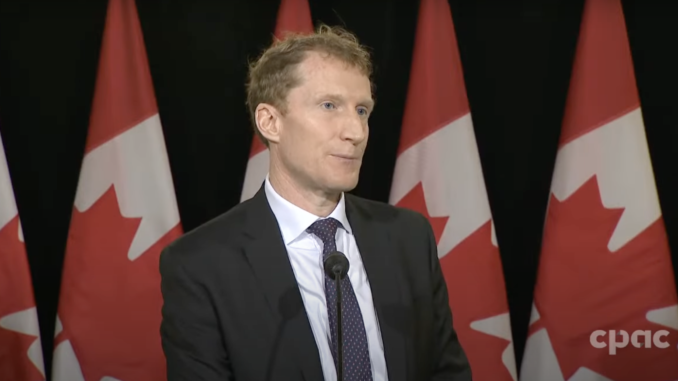
by: Begimay Koigeldi
Canada’s Immigration Minister, Marc Miller, has announced a two-year cap on new international student permits. In 2023 there were more than one million international students in Canada.
“To be absolutely clear, these measures are not against individual international students, they are to ensure that as future students arrive in Canada, they receive the quality of education that they signed up for and the hope that they were provided in their home countries.” said Miller.
The cap, set at 35%, is expected to result in 364,000 new approved permits in 2024, with a reassessment planned at the end of the first year to determine the 2025 limit.
The cap allocation will be province-based, considering population density, indicating that some provinces, particularly Ontario, may experience reductions greater than 50%. Miller emphasized that provinces would have the responsibility of distributing the cap among schools within their regions.
“Some provinces will have some room to go up if they choose so, but the provinces that have been most heavily affected will have to decrease by about 50% and perhaps even more than 50%. When it comes to new incoming people.”
Graduate-level programs, including masters and PhDs, as well as elementary and secondary school-level students, will be exempt from the cap. Miller clarified that the cap will not apply to those already studying in Canada who seek to complete or extend their schooling.

Sai Sharma, a 21-year-old international student, moved to Toronto in September 2022, and she is currently studying a journalism program at Seneca College. Sai shares her feelings about the government’s plan to reduce the overall number of study permits.
“Maybe it’s a good measure, with the current housing situation and stuff like that. I’m pretty sure they made these changes because they were very much required in the country. But at the same, I just don’t think it had a very positive impact on international students who are now stressing out about their future in the country. So yeah, I’m kind of neutral about the rules.”
Miller stressed that the cap is not intended to punish international students but to ensure a high-quality educational experience. He lamented the unacceptable practices of some private institutions taking advantage of international students, calling for the shutdown of such institutions. Miller also pointed out that post-secondary institutions have been underfunded by provinces, potentially leading them to charge higher tuition fees for international students.
President David Agnew of Seneca Polytechnic colleges communicated to students and employees about the changes in study permits and immigration rules. He assured that current international students in a program and enrolled in Canada will not be directly affected by changes to the Post-Graduation Work Permits (PGWP) system or study permit renewals. However, enrolling in new or different programs in the future will be subject to the new rules.
The federal government’s major goal with these changes is to prevent the abuse of the study permit and immigration systems by private institutions, particularly partnerships between private career colleges and public colleges. As of September, programs offered at these private campuses will no longer be covered by the PGWP program.
While the details of these changes are yet to be fully disclosed by the federal and provincial governments, Seneca Polytechnic is actively working to understand and adapt to these changes. President Agnew reassured the university’s commitment to supporting both international and domestic students amid the evolving landscape of Canadian immigration policies.

Be the first to comment